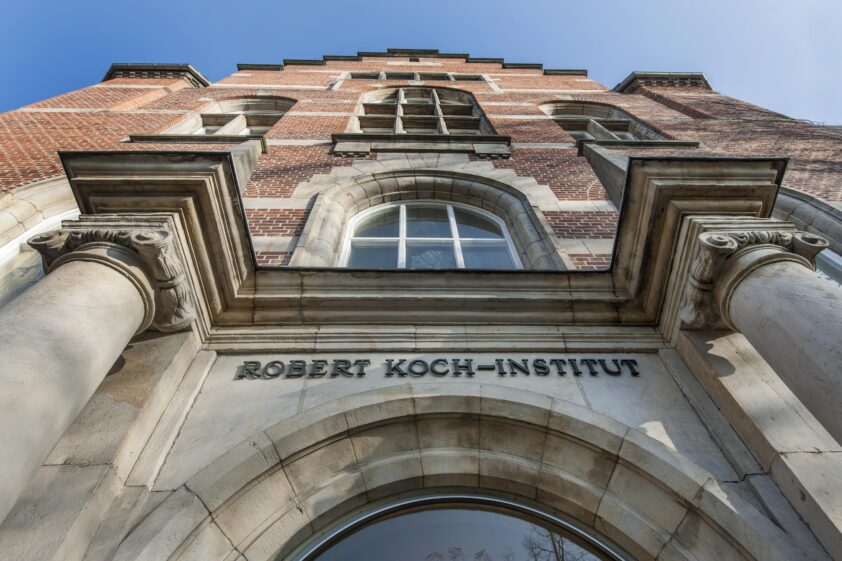Robert Koch Institute
The Robert Koch Institute (RKI) is the national public health institute for Germany. The Institute is the central institution of the Federal Government in the field of biomedicine. Its core tasks include detecting, preventing and combating infectious diseases and improving the health situation in Germany. The RKI is part of the portfolio of the Federal Ministry of Health (BMG) and its central tasks are defined in the Infection Protection Act.

Goal
The goal of the RKI is to protect the population from disease and improve their health status.
Responsibilities
Research
The RKI conducts research into the complex influences on health and disease in the population. In particular, application-oriented research serves to develop recommendations for measures to improve the health of the population. The research focuses on diseases with a high risk potential, degree of prevalence and public or health policy significance. Within the framework of health monitoring, the RKI analyzes the spread as well as epidemiological trends in the population. It is also active in the field of qualification of young scientists.
Reporting and advice
The RKI primarily informs and advises the expert public. It also has an advisory role vis-à-vis the federal government, in particular the Federal Ministry of Health (BMG), the state authorities, health offices and the medical profession. Numerous national consiliary laboratories and reference centers as well as expert committees are located at the RKI, including the Standing Commission on Vaccination (STIKO), which develops vaccination recommendations.
Recognition and management of health threats
The RKI performs a central “antenna function” in the identification of health hazards and risks in the sense of an early warning system. It provides national and international support in the detection and management of disease outbreaks or biological hazards.
International
The RKI works closely with many international organizations, such as the European Centre for Disease Prevention and Control (ECDC) or the World Health Organization (WHO). It is involved in numerous international projects and programs with the goals of monitoring and researching pathogens, containing epidemics, building laboratory capacity in partner countries, or collecting comparable health data from EU member states. In the GHPP, the RKI plays a central role – in systematic, partnership-based strengthening of public health systems, as well as in global outbreak support.
For more information on the RKI, click here.
Projects
COVID-19 Response and Recovery Alliance for Montenegro and the Western Balkans
Namibia-RKI Twinning Project: the next Phase in the Establishment of the Namibia Institute of Public Health
Capacity Building in Applied Public Health Research in GHPP Project Countries
Strengthening National Immunisation Technical Advisory Groups and their Evidence-based Decision-making in the WHO European Region and globally